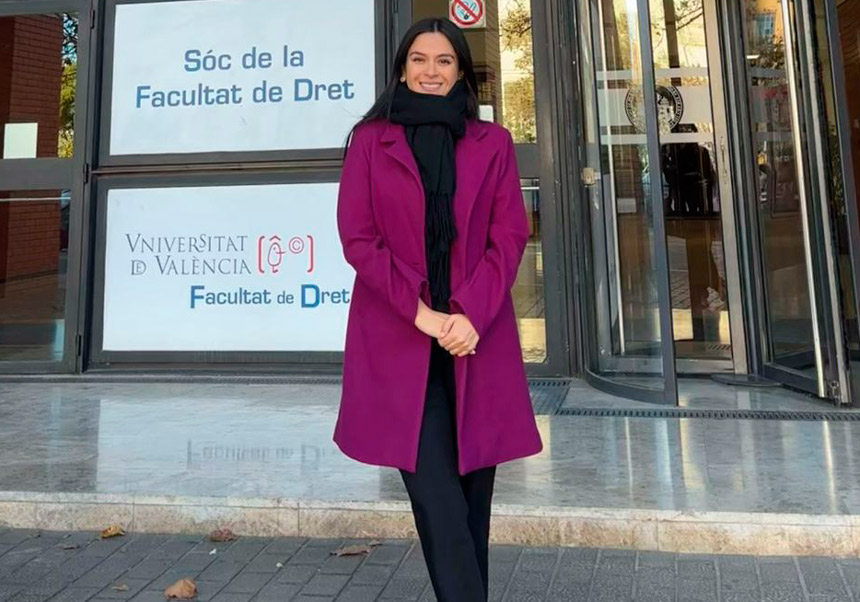
Today, globalisation, the signing of trade agreements, economic integration processes and electronic commerce, has energised the economies, but in turn it has made it difficult for countries to control this type of transactions, and especially in the corresponding to the protection of those consumers who acquire goods in other countries. They do not know where to go, since there is no international protocol that give us guidelines for this type of transactions, nor a normative uniformity, due to market volatility. For example a consumer from Colombia, could buy some air tickets at a travel agency located in Spain, to fly to France by an Irish airline.
25 september 2019
Title: Protection of users in international purchases through consumer agreements.
Author: Roxana Contreras Castro
It is not known who is really in charge of guaranteeing the right to the consumer. When the conflict arises it is not known what jurisdiction to go to and what legislation to apply. If the legal case begins in the Colombian judicial courts, the user could present the claim before the Superintendence of Industry and Commerce (Superintendencia de Industria y Comercio) who has temporary powers to impart justice or before the Civil Courts, but because of the international connotation, the Superintendence would not have jurisdiction to be an administrative entity, since it belongs to the executive branch of public power and also for being the defendant a foreign company without representation in Colombia. In the case of them pressing charges in the courts it would mean a slow and unclear process in the General Code of Procedure.
That is why this research arises, from the need to create transnational enforcement rules that facilitate the resolution of conflicts involving this type of trade, the creation of data protection policy, contractual terms and conditions of operations. For that purpose, the work has been divided into 3 chapters. In the first one, the characteristics of the consumption process not only in Colombia but in countries of the region have been analysed, reviewing the notion of consumer, producer and/or supplier, and consumer protection actions. In the second one, a comparative analysis in online purchases and consumer protection has been realised, by reviewing the ordinances of our main trading partners (such as Aladi, Can, Mercosur, among others). Finally, on the third part, a proposal for protection of transnational consumers is written, where the changes suggested are analysed.
In view of the above and after reviewing the laws of the country, I have considered some changes. The first is Law 527 of 1999 is in its second part tells us about electronic commerce in the matter of freight transport, in other words, merchandise that is purchased from the use of one or more data messages but that need a transfer of them by customs. In commercial operations, however, not all purchases need these. On the other hand, the legal standard gives us the requirements that the contract applies but it establishes that it is not taxative nor its way of writing would imply its obligation. This ambiguity when it comes to writing has benefited that some companies do not follow the law nor inform the buyer of any of the requirements that are contained there, of which is inferred that although the legislation does not speak of self-regulation in terms of trade in the real market, it does leave the parties the ability to impose the conditions.
The second legal standard that should be modified is Law 633 of 2000 in its article 91. This standard states the need to register and provide transaction information, but it only applies to Colombian users, therefore, when they purchase from a foreign corporation there is no obligation to report to the Colombian State. That has an impact on the lack of control by the administrative authorities, leaving the consumer at the mercy of self-regulation.
As for the consumer statute, the first proposed change is the modification of article 50, which in its section A requests the seller's data, but puts aside the data of the natural or legal person that represents it in the country and their identification. On the other hand, the writing of the article focuses on electronic sales within the same national territory where there is control by various public entities. However, advertising, privacy policies and contractual terms and conditions are different to force the companies to comply with this requirement.
For its part, Article 51 imposes excessive obligations on companies that provide the payment gateway service, in the sense that the parties involved must be verified, and if fraud is proven they must proceed to reimbursement. Nevertheless, in my opinion, this imposes control functions that do not correspond to a private entity, which constitutionally must be respected and granted the right to one’s good name, and therefore, initiate an internal investigation process, where its clients have had operating permits from the state.
It is also been proposed to modify article 58 of the same law, taking into account that the jurisdictional power of the SIC is limited because its competence is only in the national territory, which means that a consumer who acquired products on websites whose owner is residing outside the national territory would automatically lose competency, creating a disadvantage against consumers who purchase local goods.
Likewise, and taking into account that the political constitution grants judicial functions, said functions should also be given to it, allowing the use, like the judges of the Republic, of the request for judicial assistance (exhorto) 141, regarding the general code of the process 142 in his article 69 143, which would not be functional for a citizen who has a process of a minimum amount, since the expenses of the process and attorney fees would be very large to handle a process that can last for years taking into account the judicial repression that exists in Colombia.













